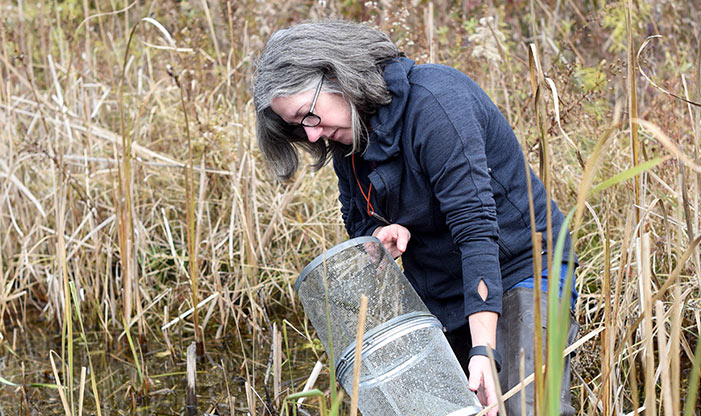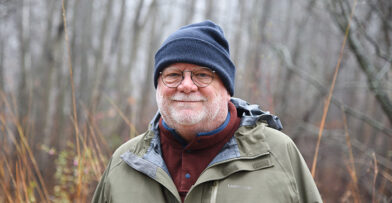With 185 acres of wetlands, forests, ravines, prairies, and Lake Michigan shoreline to care for, Schlitz Audubon has nearly unlimited need for citizen science data. As conservation efforts at Schlitz Audubon become more sophisticated, these data help drive our decision making in terms of land stewardship. The better we can understand the land, the better we can work to create healthy habitats for native plant and animal populations.
While citizen science isn’t new to Schlitz Audubon — birders have been keeping logs of every species seen on the property since 1974 — last year we took steps to strengthen and grow our citizen science efforts by increasing the number of staff-directed programs. In the first eight months, our citizen science volunteers spent more than 700 hours collecting vital population data about bats, amphibians, herbaceous plants, trees, and other species. Without these volunteers, this amount of data collection would not be possible.
Citizen Science Impacts Conservation Efforts
Some projects have very specific impacts on work performed here at the Center. For example, the federally endangered Rusty Patched Bumble Bee was found at Schlitz Audubon in summer 2017, and efforts to ascertain where the bee forages on the property can help us make habitat restoration decisions to help maintain their population. Other projects are part of regional data collection efforts spearheaded by groups like the Wisconsin Department of Natural Resources, eBird, and Monarch Watch.
All Ages Welcome to Participate
The beauty of citizen science is that anyone with an interest can find a way to help. Even our preschoolers are getting in on things by keeping an eye on a rain gauge in their main play space. When the gauge tops one inch in a 48-hour period, they notify our Resource Ecologist. He heads to the ravine to perform water sampling, data that he shares with the National Fish & Wildlife Foundation. That’s big work for kids who can count their age on one hand!
Our citizen scientists donate their time with other like-minded volunteers, performing a vital role. They gather data that will not only inform the work of future generations here, but also across our region.


